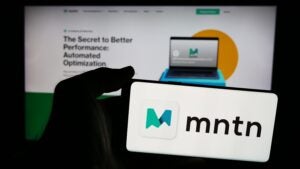 “Data-Driven Thinking” is written by members of the media community and contains fresh ideas on the digital revolution in media.
“Data-Driven Thinking” is written by members of the media community and contains fresh ideas on the digital revolution in media.
Today’s column is written by Kristin Marlow, managing director at Accordant Media.
The recent Nielsen acquisition of eXelate, an independent data management platform (DMP), marks the latest in a string of major mergers that have significantly altered the DMP landscape. The eXelate deal was preceded by Oracle’s acquisitions of BlueKai and Datalogix, as well as Acxiom’s purchase of LiveRamp.
As the dust settles, we await how these newly consolidated companies will approach the marketplace and what it will mean for brand marketers. Will all of the past year’s consolidation allow marketers to more nimbly and cohesively use data-driven marketing to move the needle for their brands?
I believe Nielsen will use eXelate’s technology to connect traditional television measurement with digital advertising metrics to generate a digital version of the gross rating point. That would put Nielsen in a prime position to be the go-to measurement source as we move closer to addressable TV.
Oracle, a traditionally dominant player in enterprise marketing, went after Blue Kai and Datalogix to become more relevant in digital ad tech. The growing importance of cross-device tracking and targeting inspired both acquisitions, particularly Datalogix.
These deals place the industry at a clear pivot point. As we get closer to creating industry standards for cross-device targeting and measurement, I understand that for some, it will be tempting to gain short-term advantage by holding back desirable third-party segments and data sources for their clients, at the exclusion of other marketers. However, I think closing ranks around proprietary strategies would create a rigid arena where marketers wind up more constricted, which would hurt long-term growth for everyone.
For marketers, this new wave of DMP consolidation adds an additional layer of evaluation to their due diligence. I see several key criteria that brands should weigh as they determine the best route forward, regardless of particular KPIs and objectives.
Data Architecture
DMPs typically take a pure SaaS approach by handing over the software without offering much guidance in the creation of audience segments. Programmatic technology works best when it is supported by analytics professionals. No matter how great the user interfaces for these platforms may be, the importance of having analytics experts sculpt or “architect” the optimal segments for your brand cannot be understated.
Audience Activation
For marketers with multiple activation points through partnerships with several buying platforms, it is critical to partner with a DMP that has the dexterity to syndicate audience segments to all of the relevant activation partners, including but not limited to first-party data and/or third-party data cookies. Acxiom’s purchase of LiveRamp was ostensibly driven in no small part by its CRM strengths.
Alongside the technical capability for multiple audience syndication, the ideal DMP partner would also be integrated with a strong demand-side platform (DSP) counterpart that could combine to offer the most streamlined data-agnostic approach possible.
Cross-Device Capability
As consumers continue to consume media across multiple devices, especially mobile, marketers should ensure their DMP partners have a clear plan to connect data across devices. Whatever data models are conceived by the DMP need to be applicable across channels, and the data gleaned across channels need to be ported back into the DMP and attributed to specific users consistently. I think it’s safe to presume that Nielsen acquired eXelate to beef up its cross-device matching capabilities for its Nielsen Online Campaign Ratings efforts.
Portability
Due to the mercurial nature of programmatic advertising and the necessity of shifting plans and resources on the fly, nearly all brands will change DMP partners multiple times over the long term. Thus, it is critical that any new DMP partner offers a painless mechanism to facilitate transfer of all brand data from one DMP to another. There have been on occasion horror stories of marketers losing years of data because their DMP partners were ill-equipped to make seamless transfers.
I’m excited to see what these newly consolidated data-driven entities will contribute to the programmatic media arena. My advice to marketers: Pay attention to how the newly acquired companies evolve under their new ownership, and if possible, encourage them to remain data-agnostic and flexible.
Follow Accordant Media (@Accordant) and AdExchanger (@adexchanger) on Twitter.












